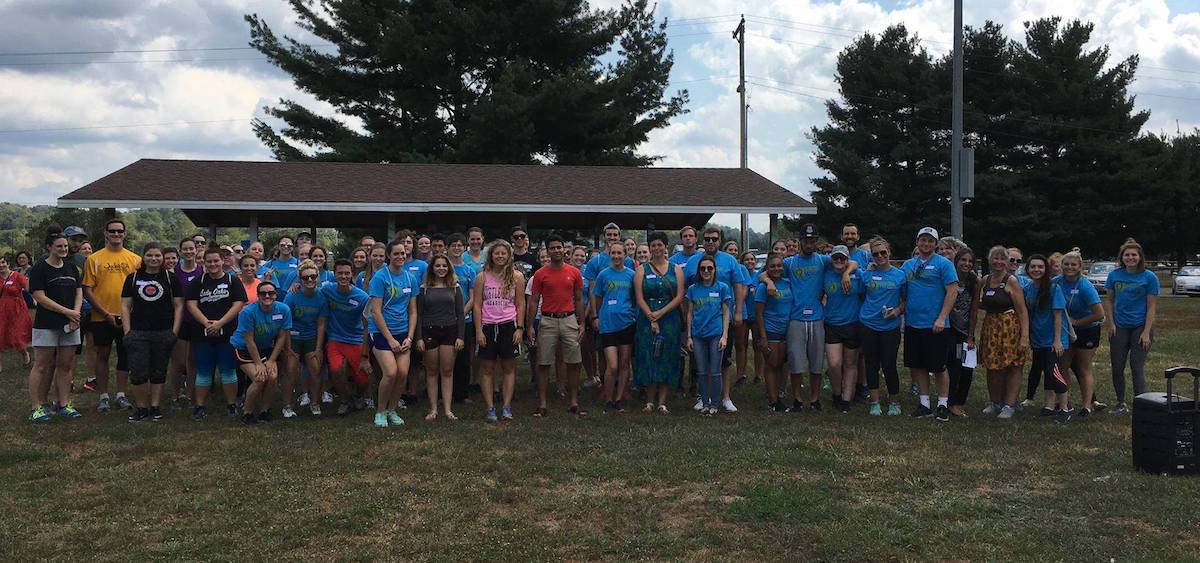Culture

Second Athens NEDA Walk Slated For September 30
By: Emily Votaw
Posted on:
More people suffer from eating disorders than one might realize – it isn’t just the slight girl sulking her way back to her dorm after class to exercise the afternoon away – and it isn’t just the person buying multiple pints of ice cream only to vomit them up an hour later, either.
According to the NEDA (National Eating Disorders Association) anorexia alone is the third most common chronic illness in young people, right behind asthma and type one diabetes. People ages 15 to 24 with an anorexia diagnosis are 10 times more likely to die as compared to their peers, the NEDA states. Anorexia has the highest mortality rate of any mental illness.
Bulimia can cause permanent damage to the heart, as well as a slew of complications related to dehydration tied to purging. Many individuals who suffer from bulimia also deal with gastroesophageal reflux disease as a result of forced vomiting.
Binge eating disorder, which is far less societally and culturally glamorized than anorexia (not that losing hair and developing lanugo is glamourous; and not that osteoporosis and amenorrhea are, either, but those aren’t the places most media explore when touching on anorexia) is over three times more common than anorexia and bulimia combined. Binge eating disorder can lead to a wide range of health consequences that are just as deadly as those caused by bulimia or anorexia — including heart disease, type two diabetes, hypertriglyceridemia, and other issues.
While the physiological and psychological underpinnings for all eating disorders may have similarities, those underpinnings express themselves through an endless myriad of abnormal or disturbed eating patterns in each individual – informed by their personal history, genetic makeup, and the societal and cultural climate in which they live.
Last year marked the very first NEDA Walk in Athens, organized by clinical psychology PhD student Shelby Martin. The walk raises funds for the NEDA, a charity that raises funds for eating disorder research.
“(Last year’s walk) was super, super successful,” said Shelby in an interview a few weeks before the 2017 Athens NEDA walk, slated for Saturday, September 30 in West State Park. “I had only ever done one of these before in a very small town in Michigan, and it was tricky to get people to show up in a smaller town. But many more people than I had been anticipating came last year, and we went over our fundraising goal by about $1,000.”
Last year the event was supported by a number of Ohio University campus groups, as well as community organizations. Major players included the Women’s Center at Ohio University, as well as the Ohio University LGBT Center.
“I think that in general people were just anticipating the event this year, and on the lookout for it, so our sponsors were immediately ready to get involved again this year, and a lot of student organizations that had smaller roles last year are taking on larger ones this year,” said Martin, stating that both Resident Life and the Positivity Project have become a bigger part of the walk.
Dr. Geneva Murray, the director of Ohio University’s Women’s Center, spoke at last year’s event, and continues to be a supporter of the walk.
“Since we do live in Appalachia, and there are those stereotypes about what populations are impacted by eating disorders, this walk is important for a number of reasons. Even though we are living in the poorest county in Ohio there are people impacted by eating disorders here. An event like this helps to put a face to those who have eating disorders – and those who are in recovery, what recovery really looks like,” said Murray. “As someone who is a recovering anorexic and bulimic, I know that social connections, like the ones made at an event like this, are very important in recovery, as eating disorders are highly isolative. It’s important to have a space where people can come together and reinforce that recovery is possible, and that it is good.”
Martin said that check in for the event starts at 10 a.m., with lots of pre-walk activities for participants to take part in, including crafts, a photo booth, and more. Speakers include a local dietician who will speak about the importance of treatment for eating disorders and a yoga instructor testifying to the benefits of yoga as a “healing tool” in recovery.
“I think that the big thing about an event like this is that everyone is impacted by eating disorders or body image concerns in some way, either they know someone who has had these struggles or they themselves have suffered from them,” said Martin. “There is a lot of stigma associated with eating disorders, so an event like this sheds light on a cause like this, to help people feel more comfortable talking about these issues, to help them feel like they can reach out for help or support if they need it.”
For more information on the Athens, OH NEDA walk or information on how to register, visit this link or the walk’s Facebook page.

